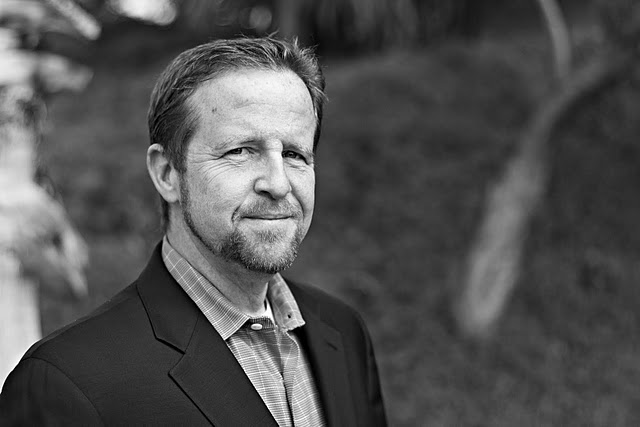Today we continue our interview with Dr. Michael Horton on his new book, Ordinary: Sustainable Faith in a Radical, Restless World. If you missed part one yesterday, you can catch up with it here.
Books At a Glance (Fred Zaspel):
Okay, Jim Smith becomes a Christian. By the Spirit’s work through the gospel Jim has now become a radically different person in many important ways. What should he expect next? What should he be looking to be or to do? How should he shape his ambitions? What is “faithfulness” for him, and by what means can he expect to achieve it?
Horton:
First, as a new branch of Christ’s vine, Jim needs to join a local expression of the church. There God promises to bathe, clothe, and feed him. He needs to look to Christ rather than to his own progress. As he grows up in Christ, he will become less easily drawn to fads and fashions. He might not be able to recall many extraordinary Sundays, but over time they will all have an incalculable effect on who he is and what he is becoming. Second, Jim needs to join his neighborhood, finding the various callings in the world that the Lord has given him. If he’s married, he should enjoy and care for his wife; if he has children, he doesn’t use “quality time” (the Big Events) as a cop-out for just being there every day. In other callings he provides goods and services that other people need. He needs to hone those skills and think more about the neighbors closest to him, sent by the Lord each day to cross his path. It’s easier to love movements and causes than people — especially the people for whom we have the greatest daily responsibility. Growing in Christ — looking up in faith to him and out to our neighbor in love: that’s the ordinary Christian life. “It can’t be that easy,” someone says. To quote Luther, “You think faith is easy?”
 Books At a Glance:
Books At a Glance:
Should we pray for extraordinary movings of God, such as revival?
Horton:
Although we still go to the doctor, we pray for miracles when a loved one is severely ill. Ordinarily, God heals through these natural means. Yet he is free to intervene miraculously as he pleases. Similarly, we can pray for revival as the Spirit’s extraordinary blessing upon his ordinary means of grace, but we shouldn’t expect it. God has promised to bless his regular ministry of Word and sacrament. He delivers extraordinary blessing through these ordinary means.
My concern with the longing for revival is that it can create the impression that God is really at work not where he has promised but where we “engineer” his special presence in grace. If God chooses to bless these ordinary means in a special way, count me in! But when I read the history of revivals, I see a lot of hype as well as fruit, often followed by disillusionment when the glow fades and there’s a doleful longing for another “visitation” — other than the one that we have every Lord’s Day. It can be like thinking we can fix our marriage with a spectacular weekend while I ignore my wife and her needs in the meantime. Or making up for my absences by taking the kids to Disneyland. I’m not against miraculous healing, romantic getaways, or Disneyland. I just think we can miss God’s gifts — and our callings — by looking for him in heaven when he comes to us in his Word and in our neighbor every day.
Books At a Glance:
In order to keep a right focus, how should the “ordinary” Christian view the many “extraordinary” movements and figures that come along and are so popular?
Horton:
We don’t need another hero or “super-apostle.” We’ve had a trail of ambitious leaders who forgot that Christ said it was his church and he would build it. Of course, he does this through his ministers as well as through the wider witness of all believers. But we need to ask one question: Where is the Word being proclaimed, the sacraments being administered according to Christ’s institution, and the sheep being cared for in their spiritual and temporal needs? That’s where the church is and where Christ has promised to be present in saving and sanctifying blessing.
Books At a Glance:
And what of that “exceptional” case – that William Carey, for example – who wants desperately to move beyond the ordinary and “attempt great things for God” … and does!?
 Horton:
Horton:
I’m amazed at what God did through William Carey. But did he set out to become “William Carey”? Or did he aspire simply to proclaim Christ where he was not yet known? Whiting out their foibles, we do have a tendency to create super-heroes. It’s not just that most of us will never be William Carey; William Carey wasn’t “William Carey.” His wife had severe depression, in part because she was uprooted repeatedly, and Carey seemed somewhat callous and aloof — as if she were in the way of his ministry. He overlooked his children’s daily care, both temporally and spiritually. None of this suggests that God didn’t use him. Obviously, in his calling as a missionary, he was amazing. But was that his only calling? I don’t say any of this to cast a shadow on a brother greatly used by God. I’m simply saying that ambition — even in the things of the Lord — can be intoxicating.
The greatest impact of the modern missionary movement was not Carey’s, but the countless missionaries whose name we will never know. They may have visited our church. They are burrowed right now in parts of the world where they are in physical danger, working daily with the hope that they will see a single baptism. In pursuing their calling with patience and dependence on the sovereign grace of God, they are planting seeds that may yield a harvest that they never see. As I read the New Testament, those are the examples to follow. What God accomplishes through their ordinary labors is his business.
Books At a Glance:
What counsel would you give “ordinary” pastors in “ordinary” ministry in light of all this?
Horton:
“I solemnly charge you in the presence of God and of Christ Jesus, who is to judge the living and the dead, and by His appearing and His kingdom: preach the word; be ready in season and out of season; reprove, rebuke, exhort, with great patience and instruction” (2 Tim 4:1-2). Don’t break off the bruised reed or put out the smoldering wick. Bring back the straying sheep, bearing the weak on your shoulders. Keep out the wolves.
But mainly, just attend to the week-in and week-out preaching and teaching of God’s Word, administering baptism and the Supper, looking after the flock through regular elder visitation, and prayer — very specific prayers — for the people under your charge and the fruitfulness of the ministry.
Don’t let folks start calling your study an office. Use sabbaticals to refresh your soul and mind with fresh insights into his truth, goodness, and beauty. Ignore the trivia, however much the pressure is to make last things first and first things last. Remember that after his resurrection, Jesus asked Peter, “Do you love me?” Three times, Peter answered, “Yes,” and Jesus said, “Then feed my sheep.” It’s not your church. You’re just a steward — a waiter who gets to serve up the dishes that the Good Shepherd has prepared for his sheep. When he takes you to your reward, he’ll replace you with another steward. It’s a great ministry to steward and pass on, because it is nothing less than the ministry of the Ascended Christ himself.
Note: If you missed part 1 of this interview, you can catch up here.
You might also like to see our previous interview with Dr. Horton on his book, Calvin on the Christian Life.

